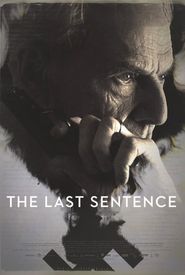Klaus Rifbjerg, a celebrated Danish author, entered the world on December 15, 1931, in the vibrant city of Copenhagen, Denmark. His childhood was spent on the picturesque island of Amager, where he was raised by two educators who nurtured his innate curiosity and enthusiasm for knowledge.
Kjeld Abstrup Riisfeldt Rifbjerg's literary output was a remarkable achievement, spanning a period of more than six decades during which he penned an impressive array of written works.
His literary debut, the novel "Den kroniske Uskyld", was published in 1958, marking a significant turning point in his career. This seminal work would later be adapted into a film in 1985, further cementing its place in the cultural canon.
This breakthrough novel served as a catalyst for Rifbjerg's prolific writing career, during which he would go on to publish an astonishing number of novels, amounting to over 100, as well as a diverse range of other written works.
These included poetry, short story collections, plays, TV and radio plays, film scripts, children's books, and diaries, showcasing the remarkable versatility and creative range of this accomplished author.
Throughout the duration of his illustrious career, Klaus Rifbjerg's remarkable contributions to the realm of Danish literature have been consistently recognized and celebrated. His distinguished accolades include the prestigious Swedish Academy Nordic Prize, bestowed upon him in the year 1999, as well as the coveted Nordic Council's Literature Prize, which he received in 1970. Additionally, Rifbjerg's innovative writing style, which he pioneered in the 1960s, has been acknowledged through the Rungstedlund Award, which he received in 2009. Furthermore, his outstanding literary achievements have earned him the grand prize of the Danish Academy, presented to him in 1966.
Danish author Klaus Rifbjerg's literary oeuvre frequently delved into the realms of childhood, meticulously examining the intricate processes of self-discovery and identity formation in young protagonists. His narratives often centered around the struggles of children as they endeavored to establish a sense of autonomy and distinctiveness, a recurring motif that underscored the complexities of adolescence.
Klaus Rifbjerg, a renowned Danish writer, breathed his last on April 4, 2015, at the ripe age of 83, after a prolonged and challenging illness had taken its toll on his health. Despite his passing, his remarkable literary contributions continue to have a profound impact on the literary world, leaving a lasting legacy that inspires and motivates writers and readers of all ages and backgrounds.




















